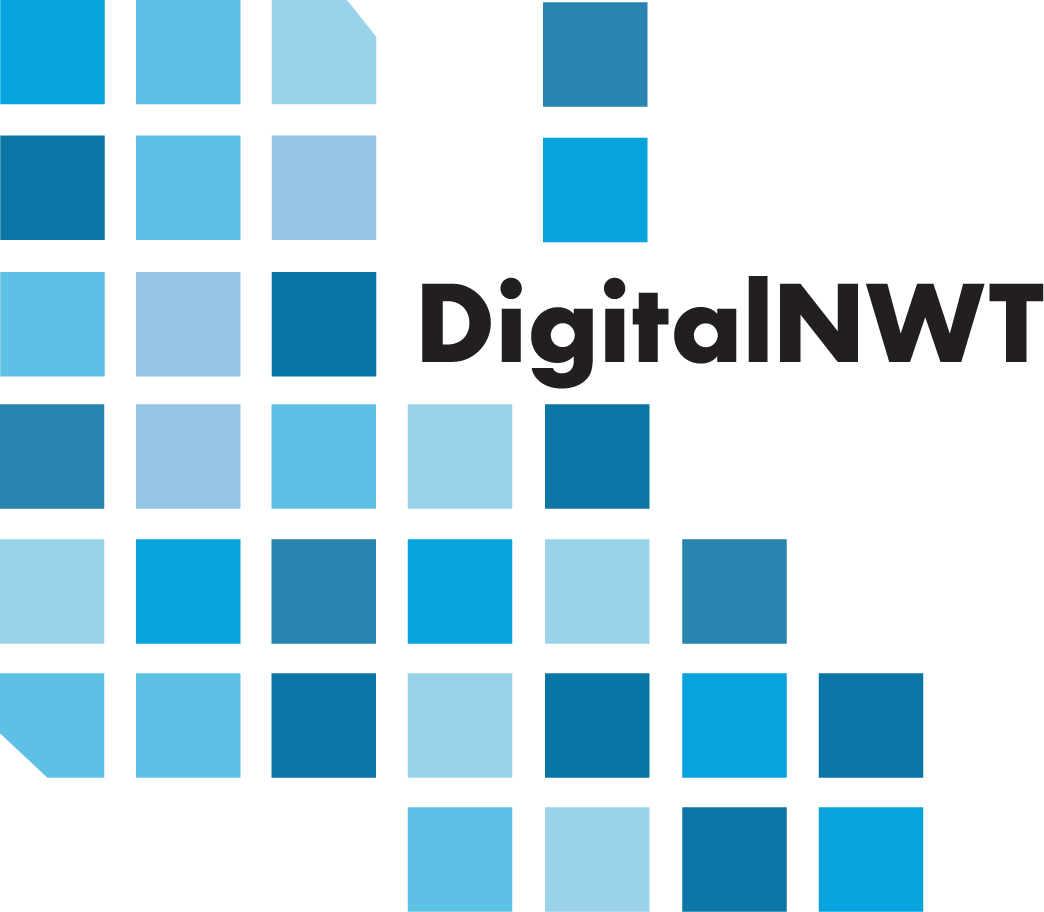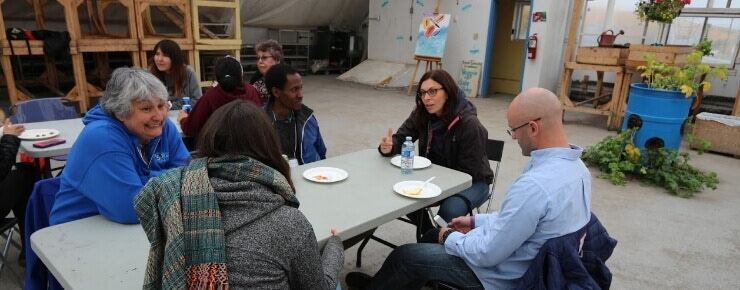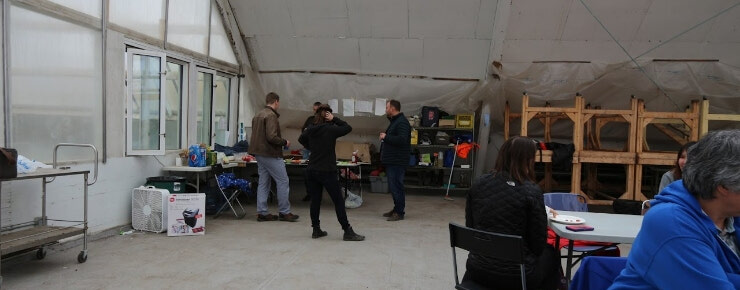DigitalNWT’s First Train-the-Trainer Workshop
What does digital literacy mean for communities in the Northwest Territories?
October 1, 2019
During a three-day workshop hosted at Aurora College in Inuvik, participants shared questions, insights and experiences around digital technology and its impacts in the North.
Exploring digital literacy
For Vina Norris, Senior Manager, HR and Capacity of the Inuvialuit Regional Corporation and Chair of the DigitalNWT Steering Committee, “digital literacy explains how we can develop and maintain a respectful and successful relationship with technology. It is a very important first step that may open doors for those who may not have confidence in technology but can enhance what they know already, and empower others to use it safely and effectively.”
On August 26-28, 2019, Vina joined the DigitalNWT team and 19 Adult Educators and community members from across the NWT to explore the challenges and opportunities that digital technologies bring to these contexts.
“If you live in a remote community, digital literacy will allow an improved online educational experience,” said Vina. “I believe we can maintain and enhance traditional knowledge by using what is learned from digital literacy courses to further empower community members, and open doors to use these technologies respectfully, carefully and successfully.”
During a three-day workshop hosted at Aurora College in Inuvik, participants shared questions, insights and experiences around digital technology and its impacts in the North. Their responses informed the first of three annual DigitalNWT “train-the-trainer” workshops. Through a participatory development approach, these workshops are building NWT-specific digital literacy curriculum that reflects local and cultural contexts, and is based on the desires, needs and interests of community members.
Demonstrating digital storytelling
The workshop’s dialogue began with an interactive demonstration of the power of digital storytelling. Jessie Curell from Hands On Media Education started the workshop by sharing a process that allows anyone with access to a tablet to bring together photos, images and their own voices to create a digital story.
At the workshop, participants heard powerful stories from Indigenous youth from across the Northwest Territories who are using technology to share their relationships with the Land, with their Elders, and with their communities.
“Digital Storytelling is a great introduction to Digital Literacy using storytelling, photography, music and voice. And can these stories ever be powerful!” said Jessie.
“Digital Storytelling is a great introduction to Digital Literacy using storytelling, photography, music and voice. And can these stories ever be powerful!” said Jessie.
After going through key points on the technical aspects of digital storytelling such as photo framing, light and angles, Jessie covered ethical considerations around consent. Participants then walked outside with tablets in hand to capture photos of the yellow trees that announce the Autumn in the North.
Others revisited digital memories on their smartphones and social media pages, and chose images they wanted to share.
Drawing on this content, by the end of the day participants from Fort Simpson, Fort Smith, Inuvik, Fort Resolution, Tulita, Behchoko, Hay River, Fort Liard, Tuktoyaktuk, Tsiigehtchic, Fort McPherson and Aklavik had all completed digital stories that they screened and watched collectively.
On the second and third days of the workshop, the University of Alberta team shared a more detailed description of DigitalNWT as a three year project that aims to create adaptable, regionally-specific digital literacy curriculum.
The project treats the workshops as a way for adult educators and NWT community members to provide direct feedback about the curriculum. Once this feedback is integrated in the curriculum, these participants will use it to teach digital literacy courses in their home communities.
“We were extremely pleased with this opportunity to bring people together from across the Territory and support this timely initiative, said Ray Savard, Program Head of the Beaufort Delta Region for Aurora College."
“Digital literacy is important for all, but especially important for our culturally diverse and geographically dispersed communities. Our educators look forward to bringing this meaningful information to our Territory, delivering community-based learning, tailoring some workshops to meet the unique needs of our residents, and seeing the results.”
The first step towards a co-created curriculum was to collectively build a Northern-specific definition of “Digital Literacy” grounded in the lives and experiences of participants.
During the second and third days of the workshop, the team from the University of Alberta shared draft modules on topics including digital connectivity, devices, social media and online risk management.
Through ongoing discussions and activities, the 19 participants provided feedback and ideas that will be used to revise and improve the content that will be delivered to community learners in early 2020.
“Digital literacy is important for all, but especially important for our culturally diverse and geographically dispersed communities. Our educators look forward to bringing this meaningful information to our Territory, delivering community-based learning, tailoring some workshops to meet the unique needs of our residents, and seeing the results.”
The workshop concluded with a barbecue under the roof of Inuvik’s Community Greenhouse. The participants received certificates while the conversation kept flowing among the new network of trainers in what felt like a solid first step for the DigitalNWT project.
Stay tuned for more updates
DigitalNWT is always seeking ways to better reflect the lives and cultures of the diverse communities we are serving. One great suggestion we heard from participants in the train-the-trainer session was to centre our course content focused on a community broadband network (Course 2) around the people it can connect, particularly aunties, uncles, and cousins. This reminds us that it is people, not technologies, that are the primary focus of digital literacy teaching and learning.
All in all, train-the-trainer remote edition was a success. All the DigitalNWT partners look forward to launching course 2 and the revised course 1 materials through fall 2020 and winter 2021. As well, we will provide these materials for free download on this website as they become finalized - stay tuned!





